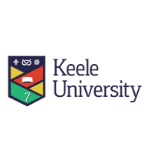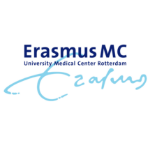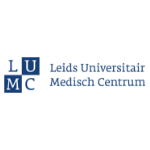Joint implementation of guidelines for osteoarthritis in western Europe
JIGSAW-E supports primary care in six European countries to address the unmet needs of adults with osteoarthritis (OA) through the systematic implementation of international guidelines for the best care and management of osteoarthritis. The JIGSAW-E toolkit offers supported self-management for those consulting in primary care.
Origins
In the EU, OA is usually managed in primary care, and delivery of quality OA care is highly variable. Self-management of long-term illnesses and support for self-management are emphasised in clinical guidelines across Europe, but patients say they need help from primary care to achieve self-management. Using research by Keele University and methods piloted in the UK, JIGSAW-E implements a model of supported self-management for OA – joint pain that typically effects those 45 and older and limits everyday activities.
Team
JIGSAW-E works through an international community of practice, bringing together academics, primary-care health professionals, industry partners and citizens in shaping local solutions to implementation challenges. The team is founded on academic leadership, dedicated project management, a committed network of clinical champions, and patient champions with lived experience of OA.
The project
JIGSAW-E supports the systematic implementation of international guidelines and quality standards for OA across six European collaborating sites in six countries. The goal is to ensure consistent care for OA, the most common chronic joint condition, and to help patients understand and self-manage their ailment.
JIGSAW-E addresses the challenge of managing OA with a focus on quality non-pharmacological therapy: written patient information; exercise; physical activity; and advice on diet and weight-management. JIGSAW-E has introduced a new model of supported self-management in primary care pilot sites and evaluated its impact using audits of OA Quality Indicators – collected using an OA e-template – and routinely recorded general practice medical records.
The JIGSAW-E innovation package includes:
- OA guidebook written by patients and health professionals
- Model OA consultation for primary care
- Training for professionals
- Medical record and patient derived Quality Indicators of OA care
EIT Health’s unique structure has helped stimulate cross-fertilisation of ideas between SMEs, academia, citizens and clinical practice to support scale-out of this project
Impact
JIGSAW-E will impact OA patients and the carers who serve them with these beneficial results:
- Strong citizen involvement and engagement
- Bespoke patient information
- A champion network of patients who co-create solutions
- International collaboration across sites of best practice
- An international community of practice whose members help shape solutions
- An innovation package for scale-up
- Knowledge mobilisation that facilitates systematic service-level change
Why this is an EIT Health project
This project’s mission of empowering patients is at the heart of what EIT Health is seeking to do. It is also in keeping with the EIT Health Focus Areas of:
- “Bringing Care Home”, because it enables patients to manage their own care with support from health care professionals.
- “Healthcare Transformation”, because it improves management of chronic conditions, a challenging healthcare problem.
External Partners:
- University of Southern Denmark
- University of the Algarve
- Diakonhjemmet Hospital, Norway
- Edinburgh Napier University
Members

CLC/InnoStars: UK-Ireland
Partner classification: Education, Research
Partner type: Linked/Affiliated Party
For more than 60 years, Keele research has created a major impact in the local region and worldwide. Keele’s researchers are tackling the most pressing challenges facing society today, including ageing, global health and renewable energy. They particularly focus on: - Tackling Chronic Musculoskeletal Pain - Tissue Engineering – A ‘growth’ area for the future - Virtual Patient to improve treatment for allergy sufferers - Malaria, Mosquitoes and Man – Breaking a Deadly Cycle - Breath of Life: A new Diagnostic Technique - X-rays and Alzheimer’s: lighting the way forward for neurodegenerative disease research
University of Keele
University of Keele, Keele University, Newcastle ST5 5NH, United Kingdom
Key Activities in Corporate Innovation
Med Tech, Diagnostics
Key Activities in Education
Medical faculties, Healthcare professional education/training


CLC/InnoStars: Belgium-Netherlands
Partner classification: Education, Research, Hospital / University Hospital
Erasmus University Medical Center Rotterdam (Erasmus MC) is the largest university medical center in The Netherlands with around 16,500 employees, and a top referral hospital for a region of about five million inhabitants. A unique infrastructure bringing multidisciplinary research and healthcare together at one location allows Erasmus MC to excel in fundamental research, fast translation of findings into the clinic including first-in-man testing and clinical implementation, and epidemiological studies.
Technical university medical center: Technology is at the core of the new strategy. Erasmus MC focuses on the use of technology and data science to foster innovation in a variety of fields – from medical instruments and devices, minimally invasive surgery, imaging and image analysis, information technology and smart data technology to artificial intelligence, machine learning and biomedical technology.
Erasmus University Medical Centre Rotterdam
Erasmus University Medical Centre Rotterdam, Dr. Molewaterplein 40, 3015 GD Rotterdam, The Netherlands
Key Activities in Research and Developement
Life Sciences, Social sciences / health economics, Clinical research
Key Activities in Social Innovation
Healthcare provision
Key Activities in Business Creation
Technology Transfer
Key Activities in Education
Medical faculties, Healthcare professional education/training


Partner classification: Education, Research, Hospital / University Hospital
The mission of the LUMC is ‘to be an innovator improving both healthcare and population health’. LUMC is a university medical center for research, education and patient care with a high quality profile and a strong scientific orientation. It has a unique research practice, ranging from pure fundamental medical research to applied clinical research. LUMC wants to perform ground-breaking innovation. Researchers, educators and healthcare providers at LUMC work together around 3 societal outreach topics, Oncology, Regenerative Medicine and Population Health. Furthermore 10 themes for innovation are defined Academic Pharma, Neuro Science, Cancer, (auto)Immunity, Cell, Tissue & organ, Cardio-Vascular, Genetics, infection, Life course and prevention and Lifestyle. https://strategie.lumc.nl/en/
Leids Universitair Medisch Centrum
Leids Universitair Medisch Centrum, Albinusdreef 2, 2333 ZA Leiden, Netherlands
Key Activities in Research and Developement
Life Sciences, Clinical research
Key Activities in Social Innovation
Healthcare provision
Key Activities in Business Creation
Incubation, Technology Transfer
